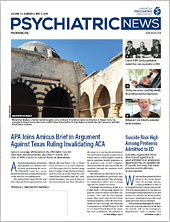A federal district court judge in late March struck down rules in Kentucky and Arkansas requiring Medicaid beneficiaries to work, stating that the federal government’s approval of those rules was “arbitrary and capricious.”
In two rulings issued on March 27, Judge James E. Boasberg of the U.S. District Court for the District of Columbia rejected rules in both states requiring individuals to report at least 80 hours of work or volunteer hours a month as a condition of Medicaid coverage. In both cases, the suits were filed by a group of Medicaid recipients against Health and Human Services (HHS) Secretary Alex M. Azar, who approved “waivers” in both states allowing them to experiment with the new rules.
In the Arkansas case, Charles Gresham, et al., v. Alex M. Azar II, et al., the judge wrote, “[T]he Secretary’s approval of the Arkansas Works Amendments is arbitrary and capricious because it did not address, despite receiving substantial comments on the matter, whether and how the project would implicate the ‘core’ objective of Medicaid: the provision of medical coverage to the needy.”
The decision in the Kentucky case, Ronnie Maurice Stewart, et al., v. Alex M. Azar II, et al., is the second time that Judge Boasberg has ruled against the work rules. Last summer, the district court found that Azar never adequately considered whether Kentucky HEALTH, the state’s new Medicaid expansion program with the work requirements, would help the state furnish medical assistance to its citizens and thus promote a central objective of the Medicaid Act. For that reason, the court concluded that this “signal omission render[ed] his determination arbitrary and capricious.”
(The work requirements in both states were enacted as part of the expansion of Medicaid coverage, which Kentucky and Arkansas have opted for, under the Affordable Care Act.)
Azar reapproved the waiver for the Kentucky Works Program last November, this time arguing that the work requirements were necessary to maintain the solvency of the state’s Medicaid program. He also argued that if the requirements are struck down, the state would rescind expansion of the Medicaid program, causing much greater loss of coverage than that caused by the work requirements themselves.
Boasberg rejected the argument using language similar to the earlier ruling and to that in the Arkansas ruling. “In failing to analyze the nature of expected savings, whether the burden on Medicaid recipients was minimal, and how the savings should be balanced against the burdens, the Secretary acted arbitrarily and capriciously,” the judge wrote.
The Arkansas work requirements that went into effect last year already caused some 16,000 people to lose Medicaid coverage because of an inability to meet the requirements. The Kentucky Works Program has yet to take effect. In both cases, Boasberg vacated the approval of the requirements and remanded the cases back to HHS.
At press time it was unknown how the agency would respond; it could ask the court for a “stay” of the decisions, allowing the requirements to remain in place while it appeals the rulings. In the meantime, the work requirements for both states cannot be enforced.
APA had joined six other groups in an amicus brief in support of plantiffs in the Kentucky case. In that brief, APA and the six groups argued that “Kentucky’s new work requirements will not ‘improve the health of Medicaid beneficiaries,’ as HHS asserts. It will deprive thousands of the neediest beneficiaries of their coverage and trigger an avalanche of negative health results. Many of the disenrolled will become sicker, and some could die prematurely.”
The other groups on the amicus were the American Academy of Pediatrics, American Medical Association, American College of Physicians, Catholic Health Association of the United States, March of Dimes, and National Alliance on Mental Illness.
Marvin Swartz, M.D., chair of APA’s Committee on Judicial Action, said many individuals eligible for Medicaid may be unable to work even if they have not been officially determined to be disabled by the Social Security Administration. “There are clearly documented gains in health outcomes resulting from Medicaid insurance coverage that will be lost, and predictably health will decline,” he told Psychiatric News. “Such a work requirement is a considerable challenge for nondisabled individuals who have intellectual or mental health conditions that seriously interfere with the ability to work. They will very likely lose access to general and behavioral health care.” ■
The ruling in
Gresham v. Azar can be accessed
here. The ruling in
Stewart v. Azar is available
here.
